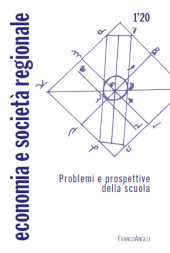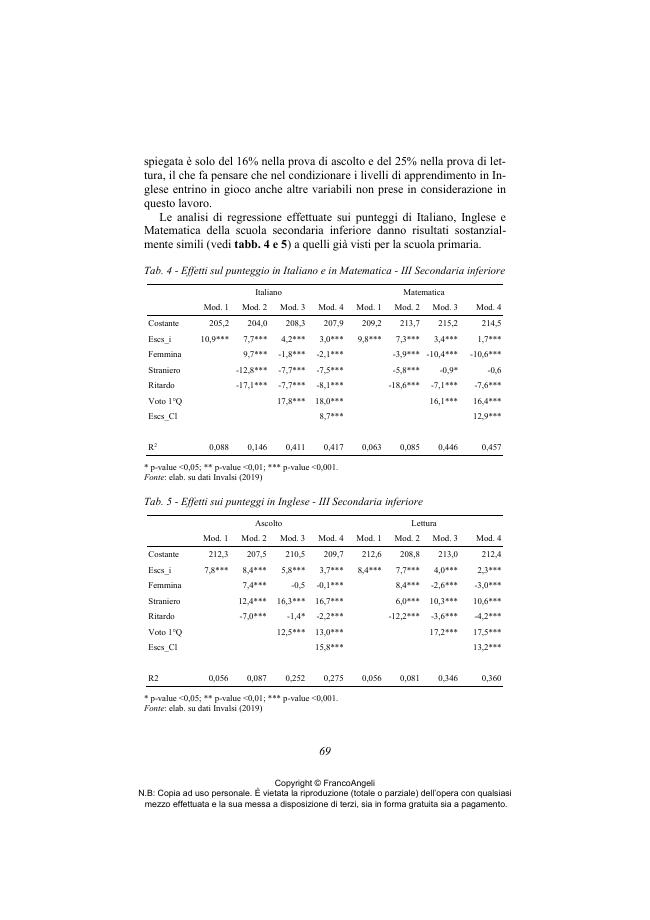Istruzione e diseguaglianze sociali nel veneto
60-78 p.
Il presente lavoro analizza l'effetto dell'indice di status socio-economico-culturale (Escs) dello studente sui risultati delle prove Invalsi di Italiano, Matematica e Inglese degli alunni veneti che hanno frequentato nel 2018-19 la quinta classe della scuola primaria, la terza classe della scuola secondaria inferiore e le classi seconda e quinta della scuola secondaria superiore. A tal fine una serie di analisi di regressione è stata effettuata sia tenendo conto del solo indice Escs come variabile indipendente sia controllando per altre variabili degli studenti che incidono sulle prestazioni nelle prove standardizzate di apprendimento, come il genere, la nazionalità, ecc. L'effetto dell'Escs diminuisce quando si tiene conto anche di queste variabili. Inoltre, più che l'Escs individuale dello studente, a pesare sui risultati delle prove è il contesto sociale della classe in cui è inserito, misurato dall'Escs medio degli alunni che la frequentano. [Testo dell'editore].
This paper analyzes the effect of student social-economic-cultural status index on Invalsi tests results in Italian, Mathematics and English of students in Veneto Region attending in the year 2018-19 the 5th grade of the primary school, the 3rd grade of the lower secondary school and the 2nd and 5th grade of the upper secondary school. To this purpose a series of regression analysis has been carried out taking into account the Escs index as the only independent variable and under control of other student variables, like gender, nationality, etc., conditioning performance in standardized achievement tests. The Escs effect lowers when controlling for these variables. Moreover, the social contextual effect of the class attended by the students, measured by the mean Escs, is stronger than the effect of personal Escs index of the pupils. [Publisher's text].
Is part of
Economia e società regionale : 1, 2020-
Articles from the same issue (available individually)
-
Information
ISSN: 2038-6745
DISCIPLINES
KEYWORDS
- Diseguaglianze educative, indice Escs, effetto di contesto, prove Invalsi
- Educational Inequalities, Escs Index, Contextual Effect, Invalsi Tests



